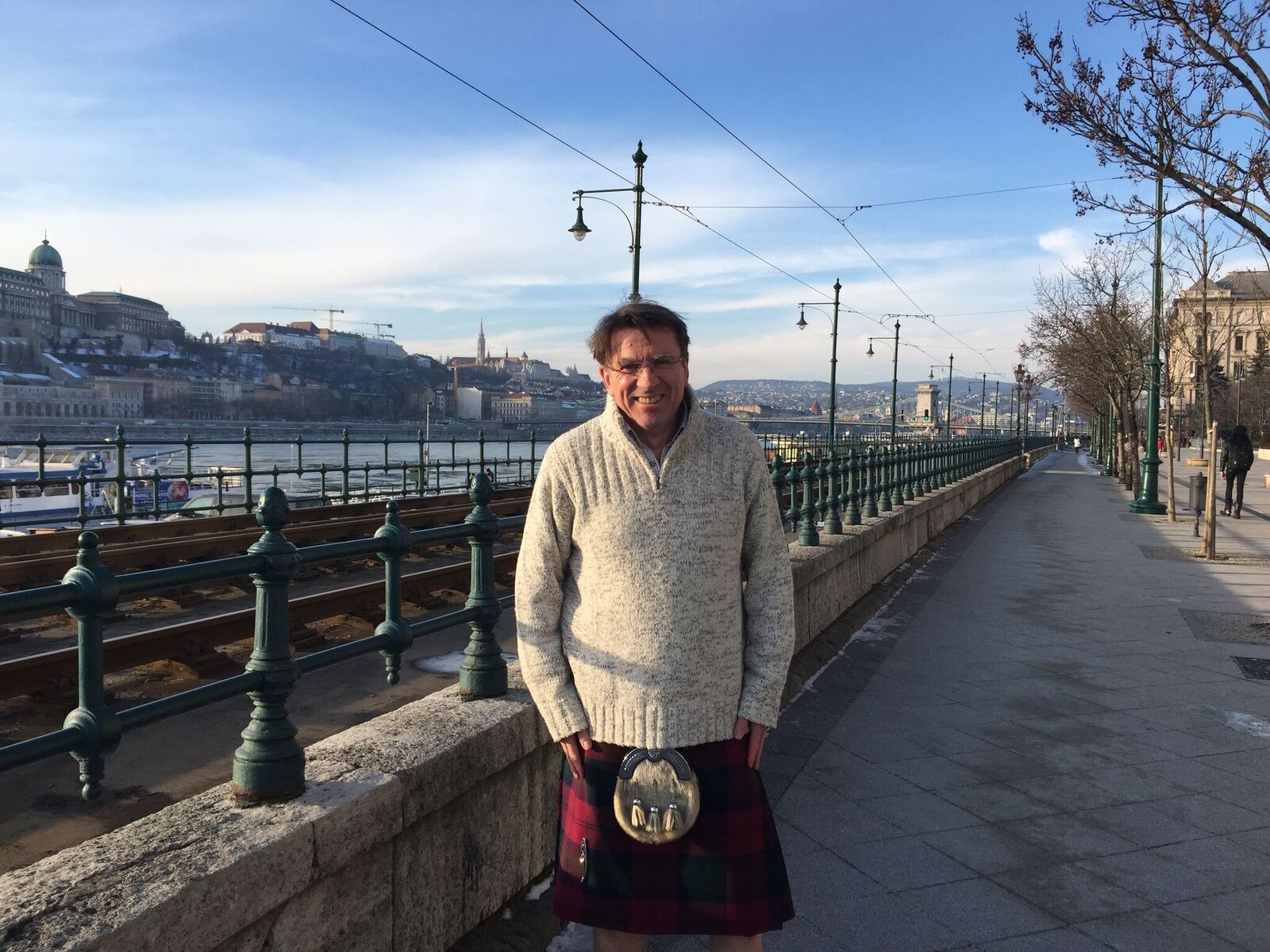“I’m very sad to be leaving. It’s a super place and Budapest is a fabulous city to live in. But all good things must come to an end, as they say,” begins Ambassador Lindsay somewhat poignantly, as family pet Juno, a rescue dog from Miskolc, scampers round the patio. We are sitting at the Ambassador’s Residence, the Neo-Baroque Scitovszky Villa built in 1925. Around the ornate interior, portraits by Philip de László, Budapest-born and a later British citizen, illustrate the long cultural and diplomatic ties between the two nations. A thoughtful initiative allowed the works to be returned to the villa in September 2019, on the 150th anniversary of the painter’s birth.

A fit man of 61, a keen runner, Falkirk-born Iain Lindsay OBE is in a reflective mood. Exactly five weeks from our interview, he and his wife Bridget will be packing up, Juno, memories and all, and driving back to London. The next port of call, however, won’t be another posting for Her Majesty’s Government.
“I was looking back at my diaries over 40 years in the diplomatic service,” says Ambassador Lindsay, “and I’ve been on the road since July 1983. I’ve been running my own ship for the last nine years” – he was the British Ambassador to Bahrain between 2011 and 2015 – “and although I love living in London, it’s a world city, I’d be a small cog in a big wheel in the Foreign Office. I’d be like a dinosaur! I’ve now been at the company, as it were, for 40 years and I think it’s time to move on.” Ambassador Lindsay would not be drawn on exactly what that next move is, only that it concerns involvement with the Arab world.
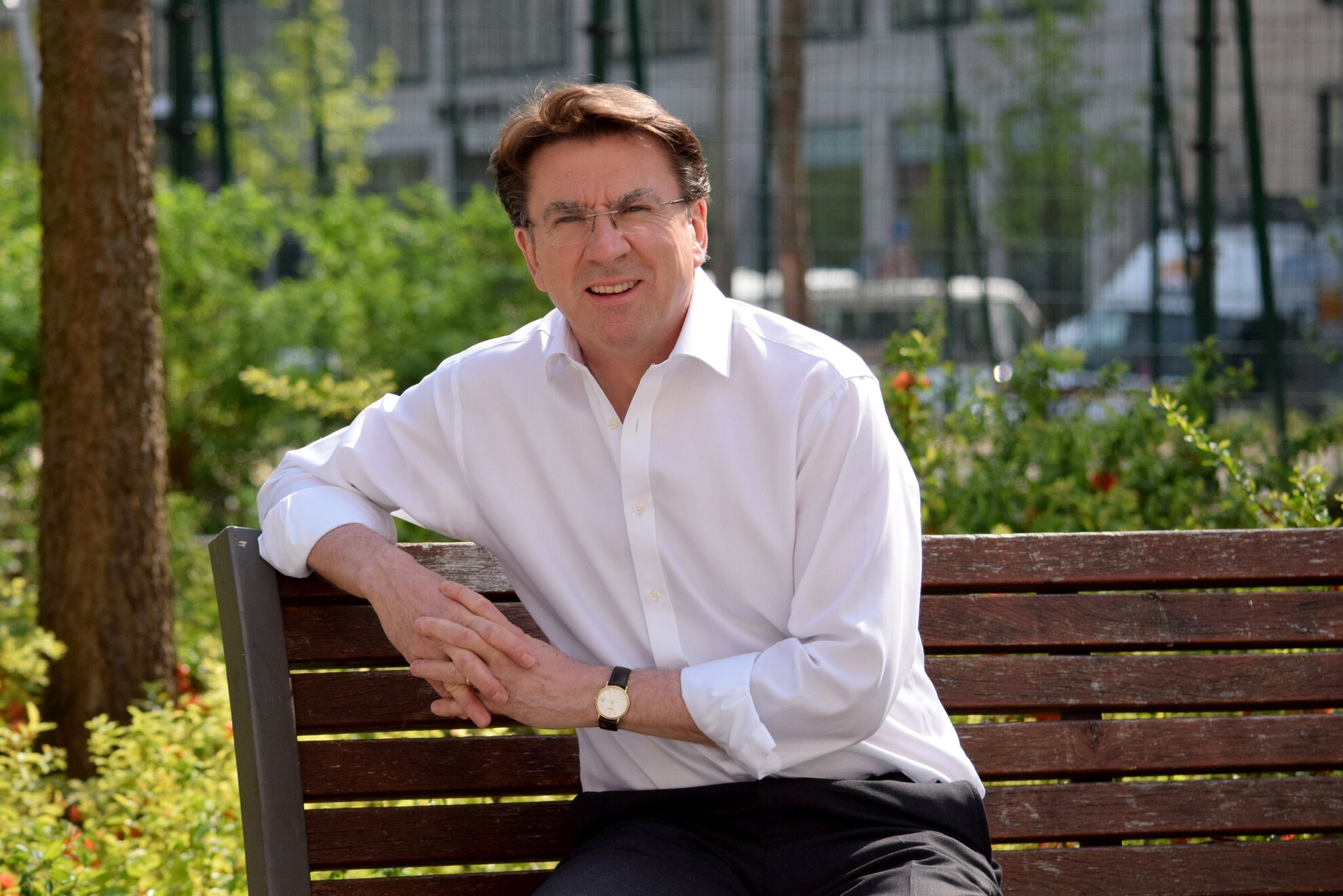
The Lindsays’ relationship with Hungary began long before this current sojourn started in March 2016. “Bridget first came here with three friends in 1982. She had been staying in Poland where everything on the menu was off that day, and here they sat in restaurants and it was ‘More sparkling wine, madam?’. She took to the place right away. I first came here in 2004. I got the ten-hour night train up from Bucharest – an experience I probably wouldn’t like to repeat – and arrived at Keleti station. I looked around at all the signs and posters, and realised I didn’t recognise any of the words. It was like the line in that old Ultravox song, ‘It means nothing to me’. Welcome to Hungary! I loved it. It was September, and the Wine Festival was on in the Castle District, I took in the view and I just thought, ‘Wow, what a place!’.
The beauty of Budapest
“Budapest can be considered not only one of the most beautiful cities in Europe but one of the most beautiful in the world.”
“When this job came up, I applied and was fortunate enough to get it. I definitely came here of my own volition. I always say that I should have done the lottery that day because my luck was in!” One of the prerequisites for the job was to learn Hungarian. “I learned Japanese at 22 and Hungarian at 56, and I can assure you that it’s much easier when you’re younger!” Mr Lindsay also learned Romanian when he was Deputy Head of Mission there between 2003 and 2007, and is next turning to Italian. “Speaking a language keeps the brain working and it keeps dementia at bay. I also enjoy it, virtually every day there’s new word, an element of grammar or a different kind of context to discover.”
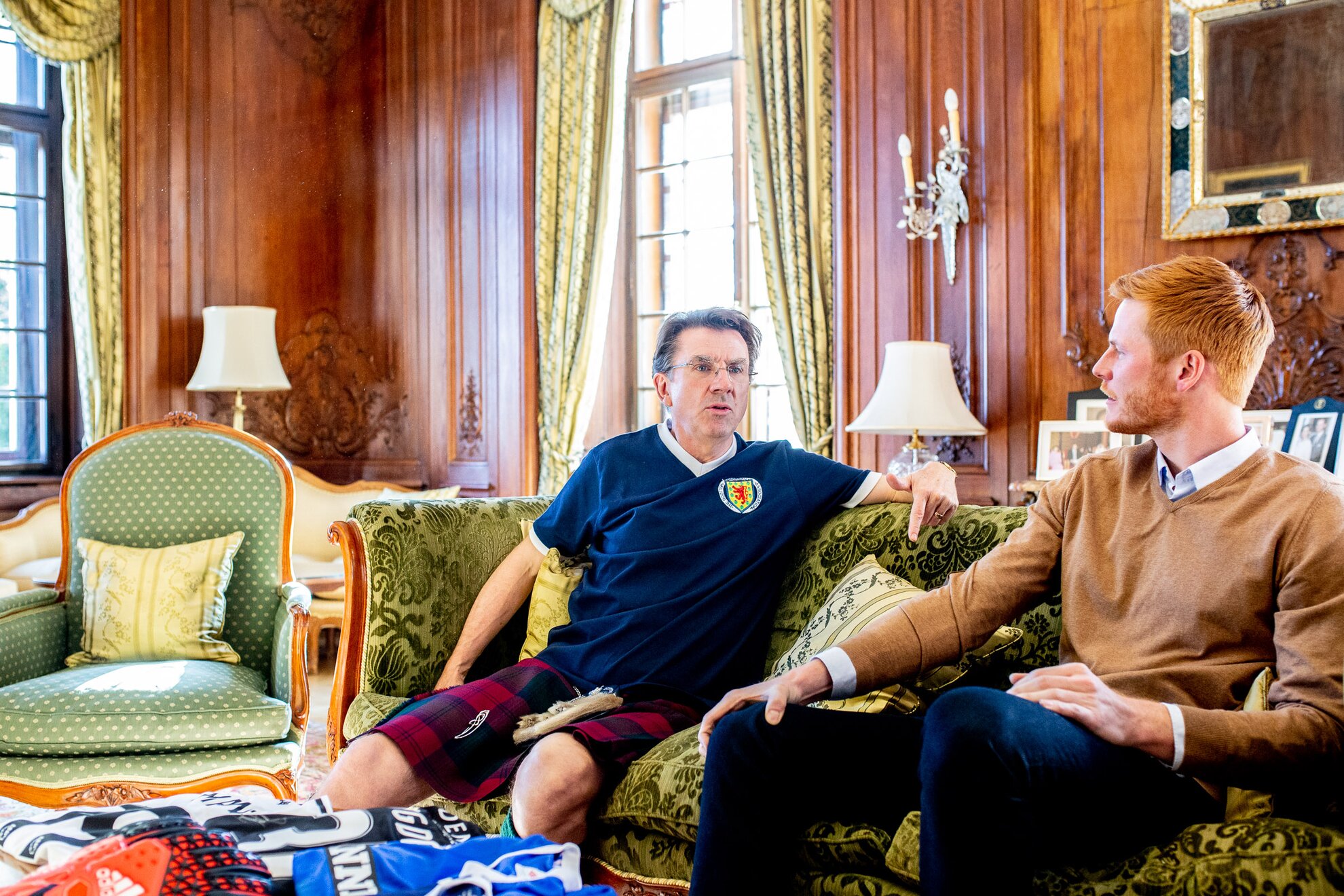
Tuition began in the UK with seven or eight months studying Hungarian. “The training school at the Foreign Office is London is amazing, they teach every language under the sun, but then you step out and you’re in an English-speaking environment – even the café in the building or the pub round the corner. At the British Embassy in Hungary, however, they then send ambassadors for a month’s language training in Pécs, then for another month in Debrecen. In that respect, we may be quite different from other embassies here. Budapest is an international city, the younger generation speaks English and you can probably get by on an everyday basis with only the courtesy words – please, thank you, and so on – which may not be the case in the rest of Hungary.”
“By learning the language, you not only show respect towards your hosts but you have a window on so many aspects of local life and culture. You see what makes the place tick. I find poetry a great help, it’s bite-sized and more easily accessible. Local friends lend me huge Hungarian novels and they can be a bit of a challenge –but verse is perfect.” Ambassador Lindsay demonstrated his penchant for poetry with his annual Burns Night addresses. In these Scottish-themed tours of Budapest, he would recite the verse of Scotland’s National Bard Robert Burns while taking sights such as the Chain Bridge, completed by fellow Scot Adam Clark, and the Jane Haining Embankment, named after the heroic missionary who risked her life to save Jews during the Holocaust.
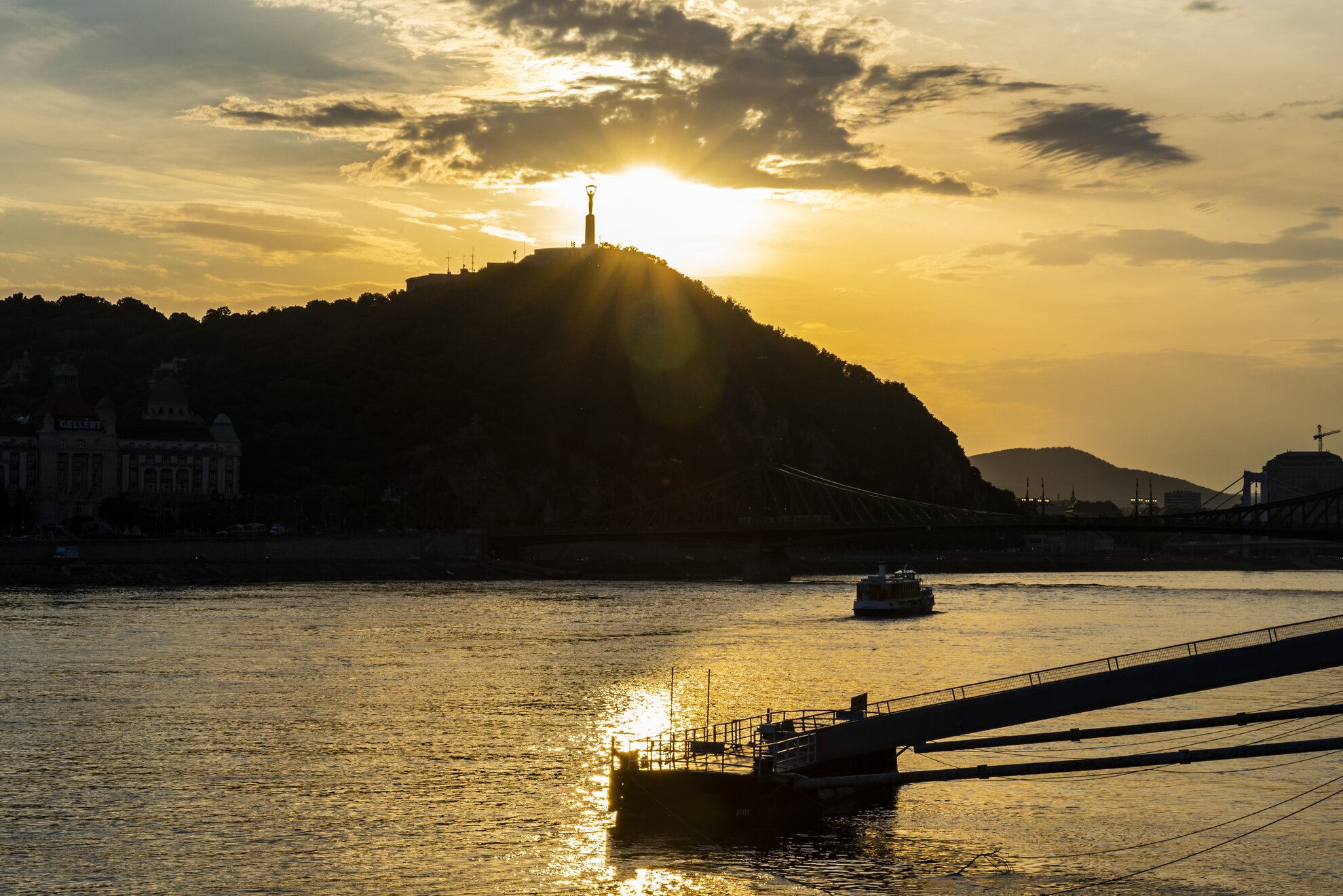
“The language is slightly counterintuitive,” says Ambassador Lindsay, referring to Hungarian. “My son and his girlfriend are visiting at the moment and I was explaining certain words to them – viszontlátásra, for example, ‘Return-seeing-to!’” After our interview, the young couple’s last evening in town, the Lindsays were planning to show them the view from the top of Gellért Hill by means of fond farewell.
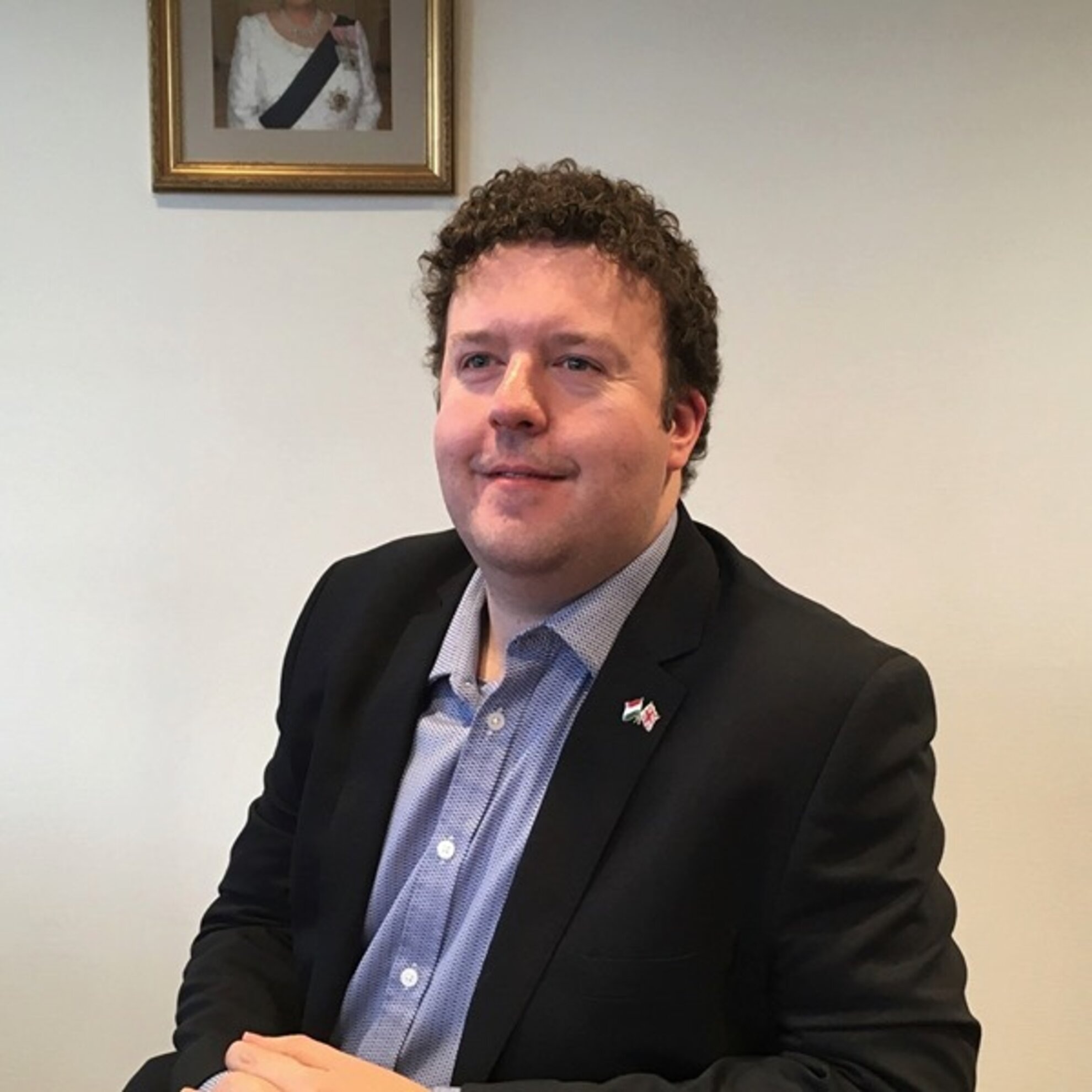
The conversation then takes a sad but inevitable turn towards Steven Dick, the Deputy Head of Mission at the British Embassy, Ambassador Lindsay’s “dear colleague and friend”, who passed away in March, an early victim of coronavirus. Steven had joined the team in November 2019 and made a tremendous impression in Hungary with his “personal warmth, his sheer professionalism and not least his excellent Hungarian”. Steven Dick had, too, studied Hungarian in Pécs. “Such a tragic loss, which affects us still,” says Ambassador Lindsay. “It had had a huge impact on me, on my family, on our whole team here at the British Embassy.”
This is also the time for Ambassador Lindsay to look back at his achievements over his time in Budapest. “When I applied for the job, I had to write a one-page manifesto, laying out why I wanted it and what I planned to achieve if I were British Ambassador to Hungary. I feel that we’ve increased our bilateral economic relationship, our bilateral commercial relationship and, certainly, our relationship in terms of bilateral defence co-operation.”
“Of course, the Jolly Joker in all this is Brexit, which happened three months after I arrived and was most unexpected. It has obviously affected our work enormously. As a consequence of Brexit, however, there has been a far stronger relationship between the British expat community here and the embassy – perhaps as strong as it was in the early 1990s and before, when this was a Communist country. Many in the local expat community have been here a while and tend to have an older profile. We need to provide them with the right kind of service, which is why we arranged these Town Hall meetings” – the most recent was a virtual one in June – “to help clarify matters for them. In terms of border controls around Covid, we’ve been pushing and lobbying very hard and very seriously for a change in the regulations”.
“Along with the uncertainty, there has been the sadness and anger felt around Europe – although here, it’s more sadness than anger. No other country in the EU has been more positively supportive and respectful than Hungary. I think the people-to-people links are very strong between Britain and Hungary, and there’s a such a large community of Hungarians in the UK. One concern would be if London and the UK lost their allure for young Hungarians because they’re also such a fantastic gateway to the rest of the world – Budapest-London-New York or Budapest-London-Singapore, say.”
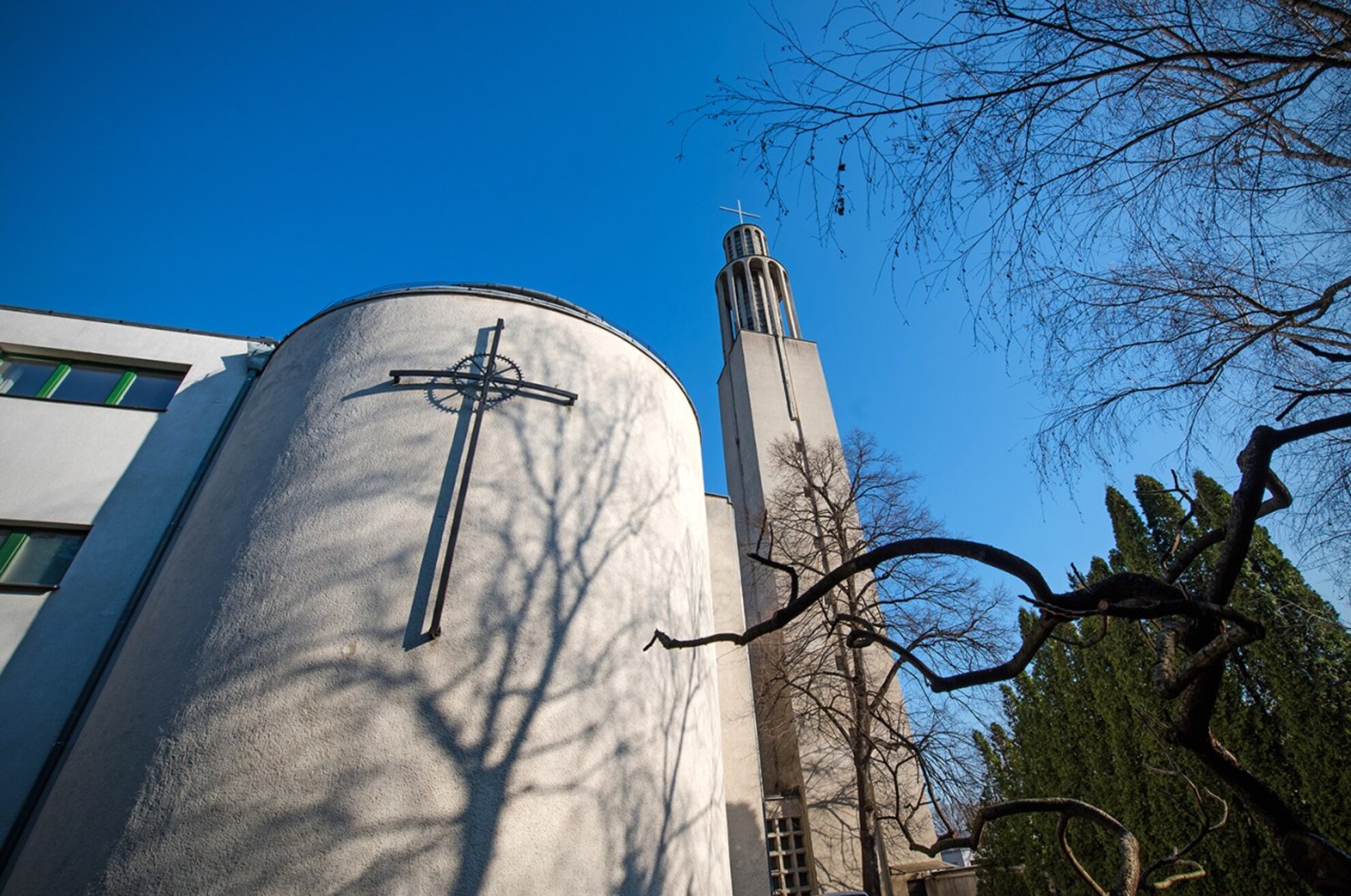
Budapest, however, can never lose its allure. “Hardly a day goes by without me thinking, ‘Wow, what a building!’, or ‘Wow, what fantastic detail!’. I love Pasarét, for example, and streets such as Szilágyi Erzsébet fasor, Torockó utca, Nyúl utca, the houses, the history… One of my absolute favourite streets is Napraforgó utca, where all but one of the houses are in the same Bauhaus style as when they were built.” “The other day I was having lunch at Félix in a wonderful building designed by Miklós Ybl, and I noticed all this detail on the ceiling and started taking photos… Budapest between the Austro-Hungarian compromise of 1867 and 1914 was like Canary Wharf on acid, just how much was built and how it was built. When you’re in Budapest, you must always remember to look up, there’s just so much to see.”
Rare European capital
“It’s one of the rare European capitals with hills, a significant river and history right in the centre.”
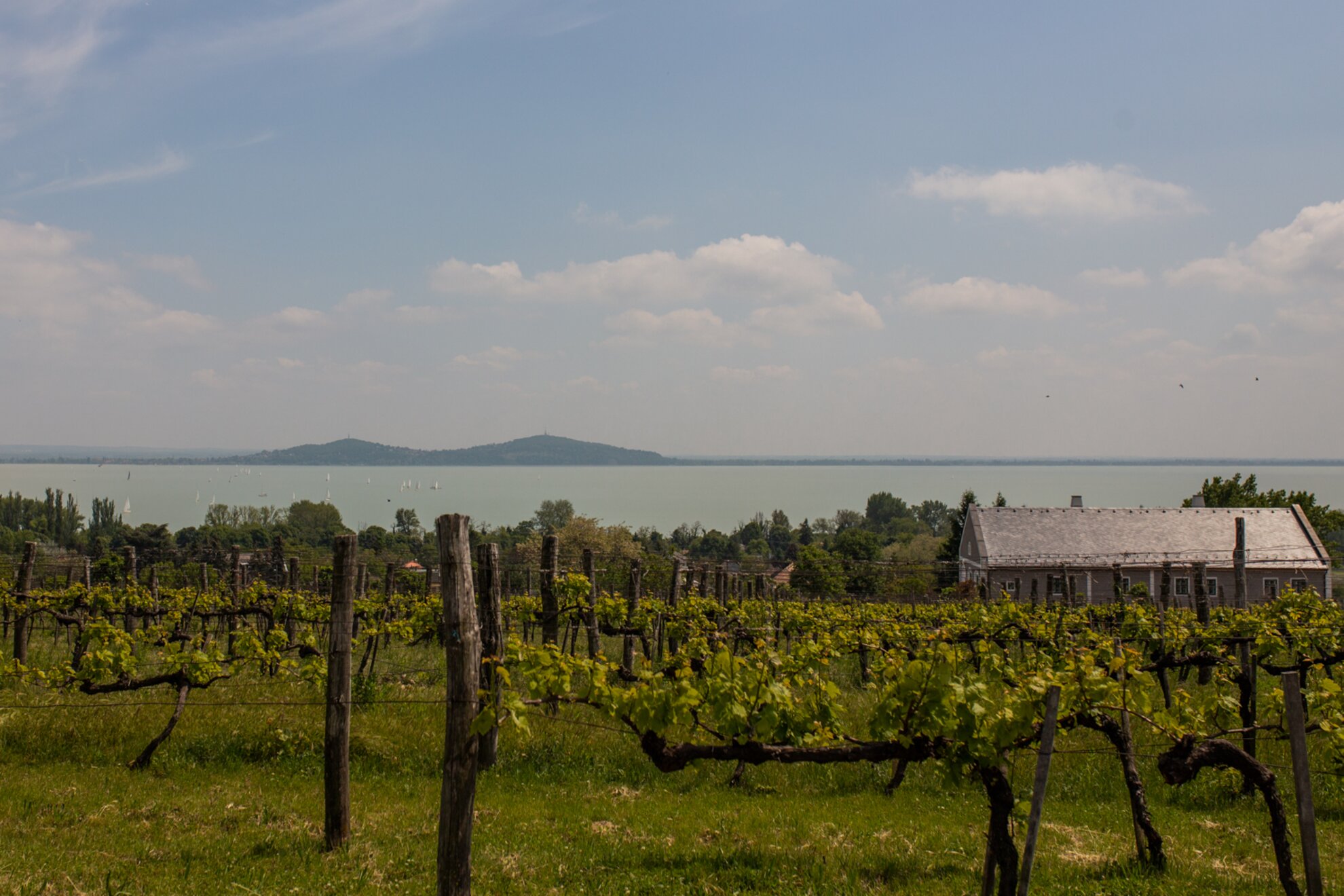
Even though it’s farewell in September, it’s not goodbye. “I foresee us coming back fairly regularly. We have lots of good friends here. I envisage a nice little place in the Balaton Uplands for a week in July, vineyards, walks and dips in the lake. Northern Europeans don’t really swim in lakes so it took me a while to actually get Balaton. It’s an absolute peach of a place! I discovered it one September, soon after most of the Hungarian visitors had gone back. One of my most abiding memories is walking around Szent György-hegy and Badacsony, then coming out of the Kisfaludy House, sitting at a wine terrace and Balaton was this wonderful volcanic blue, this milky blue. There was just us and these two lone German tourists there.”
Going back
“It’s always funny going back to our former postings, like Hong Kong, Australia or Tokyo. It’s like putting on a comfortable pair of old slippers. So I’m very much looking forward to doing that here.”
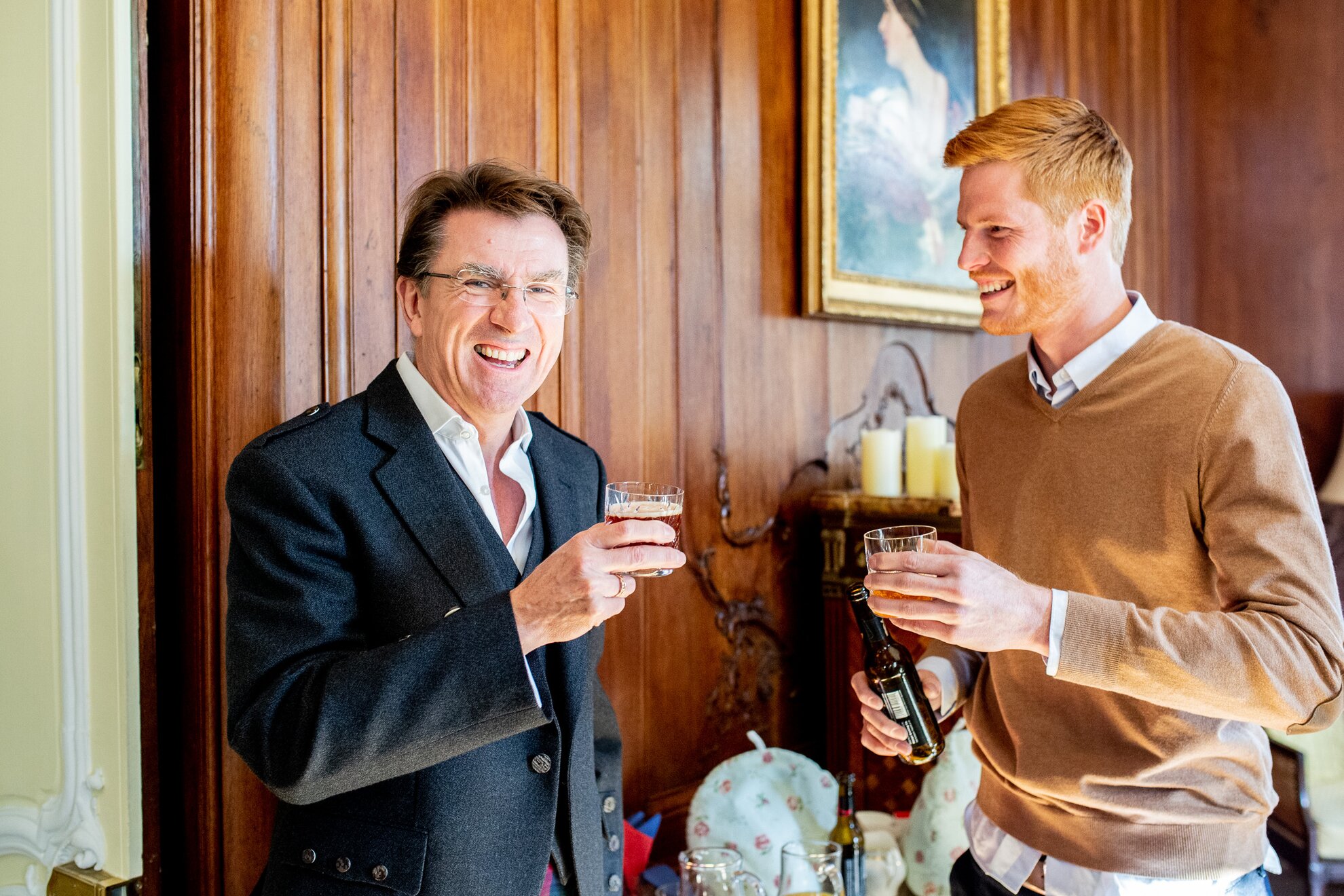
Getting up with ease from his chair overlooking the well-kept gardens at the British Residence, Ambassador Lindsay offers three pieces of advice to his successor. “First, I would say, ‘Be yourself’. As Oscar Wilde once observed, everyone else is already taken. Then, enjoy the place for what it is, without any pre-conceived notions. Finally, don’t be afraid to make mistakes – because you can only learn from them.”
